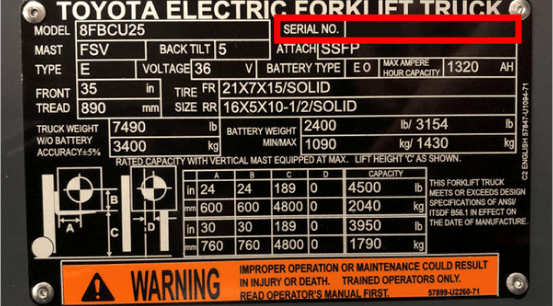Knowing The Difference Between A Closed-End Lease And An Open-End Lease

When leasing a forklift, there are often two options available for you to choose from: Closed-End Lease or Open-End Lease. It’s important when doing your initial research of these various leasing programs to understand the pros and cons of both and how they will impact your finances. When choosing to lease a forklift through Toyota Industries Commercial Finance (TICF) you will find a Closed-End Lease to be your only option. The reasoning? Closed-End Leases are the most beneficial to the end customer for liability and Return on Investment (ROI). Explore the differences between both leasing options below to learn why.
Understanding Forklift Lease Options
Closed-End Lease:
A basic understanding of Closed-End Leases means that it is closed to the lessee at the maturity of the lease. More simply put, when in a Closed-End Lease, the lessee will make their scheduled monthly payments throughout the agreed-upon term of the lease. At the end of the lease, the lessee has no contingent liability of the lease-end residual. Additionally, the leasing company is under no obligation to sell it to the customer. However, the customer may be provided with an option to purchase the equipment. A Closed-End Lease allows the lessees to simply return the equipment and move on to their next new lease, which means they will receive the latest equipment technology. On a Closed-End Lease, a customer is required to maintain the equipment in a safe operating condition with no liability for the residuals. When leasing a forklift through TICF, lessees are offered cash management flexibility in the structuring of lease payments along with the possibility of the lease payments being tax-deductible.
Closed-End Vs. Open-Ended Lease:
When comparing a Closed-End Lease with an Open-End Lease, an Open-End Lease typically has more flexible terms. However, a downfall is that the lessee takes on the depreciation risk of the asset. This means when a customer enters into an Open-End Lease, they will use the forklift for the entire length of the lease term, and after the lease expires, the customer is liable for the remaining residual balance of the equipment.
Since the lessee has no obligation to purchase the leased asset upon lease expiration and does not have to worry about whether the asset will depreciate more than expected throughout the course of the lease, it is often noted that Closed-End Leases are better for the average person.
Example Of A Closed-End Forklift Lease
Typically, a Closed-End Lease comes with a fixed rate and a term that will run for a certain amount of time (example: 60 months). The lessee might want to terminate the agreement early, a move that often incurs additional fees for the early exit. For forklifts procured through such an agreement, there are often annual operating hour limits that tend to stay around 2,000 hours. If the use of the forklift exceeds those limits, the lessee is then responsible for paying additional fees. Furthermore, the lessee is responsible for any excess wear and tear that occurs with the asset.
At the conclusion of a Closed-End Lease, the lessor might look to sell the asset at its depreciated value. It is possible that the lessee might still seek to purchase the asset at this new rate, and there may even be incentives offered to complete such a deal at a reduced price.
When financing a forklift or forklift fleet, always remember to ask a lot of questions and obtain as much information as possible. Your local authorized Toyota Dealer and Toyota Industries Commercial Finance are happy to provide you with any additional information you need as you begin your forklift leasing process.


